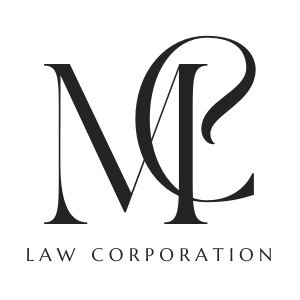Best Debt & Collection Lawyers in Singapore
Share your needs with us, get contacted by law firms.
Free. Takes 2 min.
Or refine your search by selecting a city:
List of the best lawyers in Singapore
Singapore Debt & Collection Legal Questions answered by Lawyers
Browse our 1 legal question about Debt & Collection in Singapore and read the lawyer answers, or ask your own questions for free.
- Debt collection
- I am based in Singapore and hold a Singaporean passport. However, I have a debt to claim from someone in the Philippines, Lipa City, Batangas.
-
Lawyer answer by Yuen Law LLC
Thank you for reaching out to our firm. May we know the size of the claim, and how it arose?
Read full answer
About Debt & Collection Law in Singapore
Debt and collection law in Singapore is a branch of commercial law that deals with the legal processes involved in the collection of debts. The legal framework is designed to protect the rights of creditors while ensuring that debtors are not subjected to unfair practices. Enforcement of such laws is crucial to maintaining a fair and effective financial system. The legal procedures in Singapore emphasize transparency and fairness, with strict guidelines on how debts can be collected, ensuring that all actions are consistent with ethical and legal standards.
Why You May Need a Lawyer
There are several situations where individuals or businesses might require legal assistance in the field of debt and collection:
- Debt Recovery: When a debtor fails to make timely payments, creditors may need legal counsel to recover the outstanding debt effectively and legally.
- Negotiating Settlements: Legal help might be necessary to negotiate a settlement with the debtor, ensuring that it is equitable and enforceable.
- Defending Against Predatory Practices: Debtors who experience aggressive or illegal collection practices may need legal assistance to protect their rights.
- Bankruptcy Proceedings: Both creditors and debtors often require legal representation during bankruptcy proceedings to protect their interests.
- Dispute Resolution: If disputes arise regarding the amount owed or the terms of repayment, a lawyer can help mediate or litigate these issues.
Local Laws Overview
Singapore has comprehensive laws governing debt collection, focusing on maintaining a balance between the rights of creditors and the protection of debtors. Some of the key aspects include:
- Licensing: Debt collectors must be licensed, ensuring they operate within legal parameters.
- Fair Debt Collection Practices: The Consumer Protection (Fair Trading) Act provides guidelines to prevent abusive and deceptive practices by debt collectors.
- Legal Recourse: Creditors have the right to pursue legal actions such as writs of summons or statutory demands to recover debts.
- Bankruptcy Laws: Governed by the Insolvency, Restructuring, and Dissolution Act 2018, these laws lay out procedures for debt restructuring and discharge of debts.
- Statutory Demands: Creditors can issue statutory demands as a prelude to filing for bankruptcy if the debt remains unpaid.
Frequently Asked Questions
What is a statutory demand in Singapore?
A statutory demand is a formal request for payment of a debt. If the debtor fails to comply within 21 days, it may lead to bankruptcy proceedings.
Can I negotiate a debt settlement in Singapore?
Yes, debt settlement can be negotiated through various means such as partial payments, lump-sum payments, or revised payment terms. Legal advice is often useful in these negotiations.
What actions are considered illegal for debt collectors in Singapore?
Harassment, misrepresentation, using abusive language, or contacting the debtor at unreasonable hours are considered illegal actions under local laws.
What should I do if I receive a writ of summons?
It is important to respond immediately by consulting a lawyer to understand your options for defending against the claim or negotiating a settlement.
How does bankruptcy affect my ability to obtain credit in the future?
Filing for bankruptcy can significantly impact your credit rating and may limit your access to new credit for several years.
Is there a limitation period for debt collection in Singapore?
Yes, under the Limitation Act, most contractual debts can only be collected within six years from the date the debt became due.
Can a debt collector contact my family and employer?
Debt collectors can contact your family and employer but primarily to obtain your contact information. They cannot disclose the purpose of the call or harass them.
What are the potential outcomes of a bankruptcy proceeding?
Outcomes may include asset liquidation to pay creditors, debt restructuring, or discharge from debts if criteria are met under the Insolvency, Restructuring, and Dissolution Act.
How is a debt collection agency different from a law firm?
Debt collection agencies focus on collecting outstanding debts, while law firms provide comprehensive legal advice and representation in court proceedings related to debt recovery.
Can I face imprisonment for not paying my debts in Singapore?
No, debtors cannot be imprisoned for failing to pay debts, although there may be legal and financial consequences such as bankruptcy.
Additional Resources
For further assistance, consider reaching out to the following resources:
- Credit Counselling Singapore: Offers financial advice and debt management services.
- The Law Society of Singapore: Can provide referrals to lawyers specializing in debt and collection.
- Ministry of Law Singapore: Provides information on the legal framework for insolvency and debt management.
- Consumers Association of Singapore: Offers consumer protection and advice related to financial disputes.
Next Steps
If you need legal assistance in debt and collection, consider taking the following steps:
- Consult a lawyer specializing in debt recovery and insolvency for personalized legal advice.
- Gather all relevant documentation concerning your debts for a comprehensive review by your lawyer.
- Explore alternative dispute resolution methods, such as mediation, to settle disputes amicably.
- Evaluate all your legal options, from initiating debt recovery procedures to defending against a claim.
Taking the right steps can empower you to manage your debt situation effectively and ensure that your rights are protected throughout the process.
Lawzana helps you find the best lawyers and law firms in Singapore through a curated and pre-screened list of qualified legal professionals. Our platform offers rankings and detailed profiles of attorneys and law firms, allowing you to compare based on practice areas, including Debt & Collection, experience, and client feedback.
Each profile includes a description of the firm's areas of practice, client reviews, team members and partners, year of establishment, spoken languages, office locations, contact information, social media presence, and any published articles or resources. Most firms on our platform speak English and are experienced in both local and international legal matters.
Get a quote from top-rated law firms in Singapore — quickly, securely, and without unnecessary hassle.
Disclaimer:
The information provided on this page is for general informational purposes only and does not constitute legal advice. While we strive to ensure the accuracy and relevance of the content, legal information may change over time, and interpretations of the law can vary. You should always consult with a qualified legal professional for advice specific to your situation.
We disclaim all liability for actions taken or not taken based on the content of this page. If you believe any information is incorrect or outdated, please contact us, and we will review and update it where appropriate.
Browse debt & collection law firms by city in Singapore
Refine your search by selecting a city.












